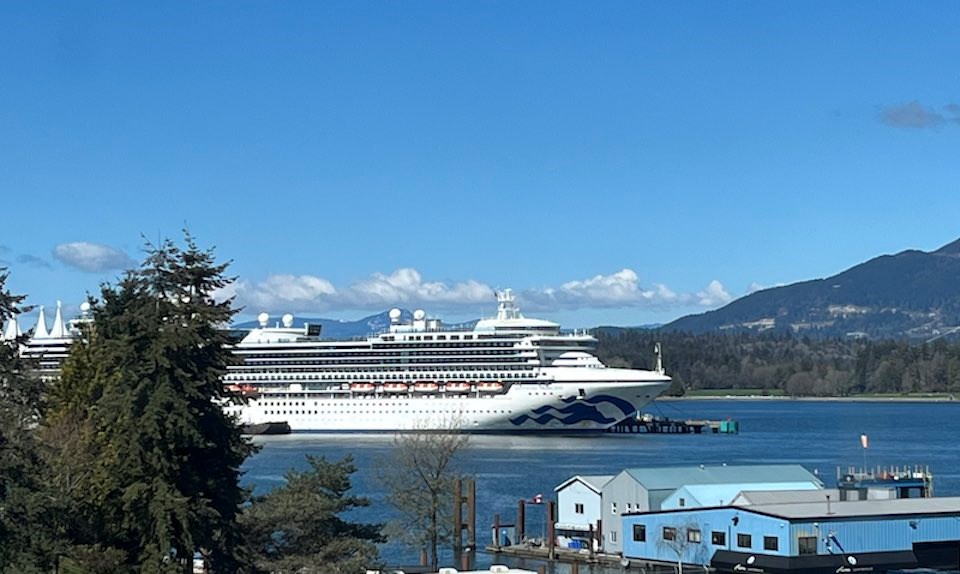Environmental activists are calling on the federal government to ban cruise ship dumping in Canadian waters as the 2023 season gets underway.
The Port of Vancouver welcomed the first ship of the season -- the Sapphire Princess -- on Wednesday, April 12, commencing a potentially record-setting season at the popular cruise terminal.
Three-hundred-and-thirty-one ships are scheduled to visit Canada Place between April 12 and Oct. 12, which is nearly an eight per cent increase over 2022. The final ship of the season, , will depart from the terminal on Oct. 24.
And while the port authority's figures show that Vancouver's cruise industry injects an average of almost $3 million into the local economy for each ship that visits Canada Place, environmental activists say the massive vessels pollute local waters with a variety of contaminants.
Grassroots environmental organization Stand.earth has delivered a petition to Transport Canada that calls for an end to cruise ship dumping, which it says pollutes the ocean with "fecal coliform, heavy metals and polycyclic aromatic hydrocarbons" that wreak havoc on the coastal ecosystems.
The petition, which was sent electronically to Transport Minister Omar Alghabra, has been signed by over 52,000 people.
Vancouver cruise industry under the environmental microscope for harmful practices
Transport Canada spokesperson Lau Lau Siu told V.I.A. it follows a "comprehensive regulatory regime" under the Canada Shipping Act, 2001 (CSA, 2001) and its associated regulations.
All cruise ships on international voyages are subject to the requirements set out in the International Convention for the Prevention of Pollution from Ships (MARPOL) regarding energy efficiency and carbon intensity improvements that came into effect on Jan. 1. Transport Canada is examining a domestic approach to reducing the carbon footprint, too.
Canada also introduced "enhanced environmental measures" in April 2022, which will strengthen the country's existing sewage and greywater discharge requirements for cruise ships; they will be made mandatory through amendments to the Vessel Pollution and Dangerous Chemicals Regulations.
Until these new measures are implemented, however, an interim order will allow the government to bring the new rules into force faster.
But Stand.earth says Transport Canada still hasn't enacted the , meaning that cruise ships visiting the terminal right now aren't being held to a new standard.
A spokesperson for the Vancouver Fraser Port Authority noted that it was one of the country's first ports to ban the discharge of scrubber wash water while ships are at berth or at anchor in Vancouver and that it plans to expand these restrictions.
Additionally, all ships that visit the port are prohibited from discharging black and grey water within the port's navigational jurisdiction.
Anna Barford, Canada Shipping Campaigner at Stand.earth, says these measures are not strong enough to prevent irreversible damage.
“Any ship can dump sewage directly into the ocean, contributing to the destruction of kilometers of critical habitat and food sources for endangered and threatened species,” she said.
“It’s time for the federal government to stop the cruise industry from treating the coastline as its personal toilet bowl.”
With files from Glen Korstrom.




